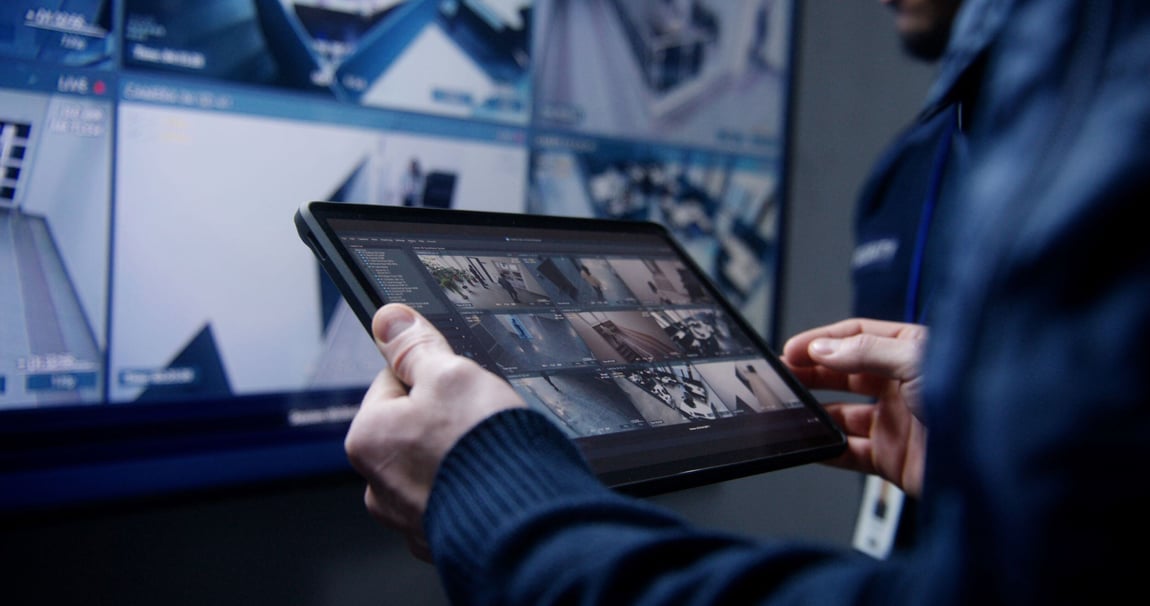
AI on Policing: How AI is Changing the Shape of Law Enforcement
Imagine a world where robots act as police officers, drones maintain public order, and sophisticated technology predicts and prevents crime. While this scenario might evoke images of science fiction, advances in Artificial Intelligence (AI) are bringing such visions closer to reality.
Transforming industries with AI
AI and robotics are transforming the way many businesses operate. As the speed and accuracy of AI increases, so too does the range of practical applications for which it can be used. AI is now routinely used in many industries including healthcare, finance, and retail.
It powers robot-led surgeries to improve precision and safety, monitors financial transactions to spot and stop fraud, and enables chatbots to respond to customer enquiries in real-time.
AI's emergence in law enforcement agencies
AI is also reshaping policing around the globe. Although not yet widespread, there is an increasing awareness of AI's potential to expand law enforcement's capabilities and increase efficiency, thereby allowing officers to focus on other tasks.
The law enforcement community is actively exploring the ethical implications and responsible use of AI technologies in their work.
When used appropriately, AI can expedite and improve crime prevention and control, offering greater protection for both public and officers alike.
Current AI applications in data driven policing
Some examples of how AI is already used within policing include automatic licence plate readers, facial recognition, image and text redaction software, chatbots, and more controversially, predictive policing tools.
- Predictive policing algorithms use historical crime data to forecast where crimes are likely to occur, helping police allocate resources more effectively.
In some countries, such as Singapore, drones are used for search and rescue operations, crowd control, and to combat crime.
One notable implementation is AI-powered live facial recognition, which allows for real-time identification using stored images and videos. Such technology has shown its efficacy in the UK, leading to multiple arrests, and prompting calls for its broader adoption.
Navigating the ethical landscape of AI in policing
A significant challenge for law enforcement is the responsible, lawful, and unbiased development and application of AI in data driven policing. AI systems used to predict crime must be carefully designed to avoid perpetuating historical biases and ensure fair outcomes.
- New governance structures and guidelines seek to address these concerns and build public trust and confidence in the use of AI within policing.
- This includes Interpol’s new toolkit for responsible AI, the UK National Police Chief’s Council (NPCC)’s covenant for using AI in a fair, transparent, and accountable way, and US President’s Executive Order on the use of artificial intelligence to name a few.
Envisioning the future of AI-assisted policing with pedictive policing algorithms
As AI and machine learning continue to advance, they will unveil new possibilities for law enforcement. For instance, South Wales Police have already trialled facial recognition technology at large events to enhance public safety.
At Guildhawk, we foresee a future where AI empowers police officers to communicate effortlessly with victims, witnesses, suspects, and the public at large, in any language.
- Human police officers will converse in real time with victims, witnesses and/or suspects in their main language via multilingual body-worn audio devices.
- Digital (avatar) police officers will deliver routine communications in police stations and at public kiosks. For example, reading suspects their rights, providing crime prevention advice, or explaining how to report crime.
- Multilingual police drones will be used as first responders in emergencies, terror attacks, riots, and civil commotions, to disperse crowds and protect lives.
We believe that meticulously trained and secure conversational AI, which is rigorously tested and verified by human experts, will revolutionise public safety by making communication quick, easy and trustworthy.
All we need now is the inspirational leadership of tomorrow, applied today.
David Clarke is the Chief Security Officer at Guildhawk. He is a former Detective Chief Superintendent and was responsible for developing and leading the United Kingdom’s National Fraud Intelligence Bureau.
